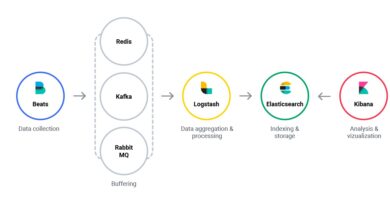A Strategic Business Plan to Help You Succeed
If you want to be successful in business, you need a strategic business plan. This document will outline your goals, strategies, and tactics for reaching those goals. Without a strategic business plan, it isn’t easy to make informed decisions about where your company should go next. This post will discuss the components of a strategic business plan and how to create one for your business. Let’s get started!
The Executive Summary
It is the most important part of a strategic business plan. It is a brief overview of the entire plan and should include the company’s mission statement, key objectives, and a brief description of the products or services offered.
Company Background
The company background section should provide an overview of its history, current status, and future goals. This information will assist the readers in getting a better understanding of the company and its strategic direction.
Market Analysis
A market analysis is essential to any strategic business plan. It provides detailed information about the industry in which the company operates, including data on market size, growth rates, competitors, and customer needs. This information will help the company to identify opportunities and threats in the marketplace.
Sales and Marketing Strategy
A strategic business plan’s sales and marketing strategy section outline the company’s plans for generating sales and building brand awareness. This plan should include target markets, pricing, promotions, and distribution channels.
Operational Plan
The operational plan outlines the day-to-day activities of the business, including production schedules, human resources requirements, and financial projections. This information is important for investors to understand how the company will be run daily.
Financial Plan
It includes detailed information on the company’s revenue, expenses, cash flow, and capital requirements. This information is important for investors to understand the company’s financial health.
Risk Management Plan
The risk management plan outlines the risks associated with the business and how they will be managed. This information is important for investors to understand the potential risks and rewards of investing in the company.
Exit Strategy
An exit strategy is a plan for how the company will be sold or liquidated if it is unsuccessful. This information is important for investors to understand the potential risks and rewards of investing in the company.
Appendices
The appendices section includes supporting documents such as resumes, marketing materials, financial statements, and legal contracts. This information is important for investors to have a complete picture of the company.
Review and Revision
A strategic business plan should be reviewed and revised regularly to remain relevant and up-to-date. This process will help the company to adjust its plans as needed in response to changes in the marketplace or the economy. Regular reviews will also help ensure that the plan’s goals and objectives are still achievable.
Strategic business plans are important for any company looking to succeed. They provide detailed information about all aspects of the business, from market analysis and sales strategies to financial projections and risk management plans. A well-crafted strategic business plan can be a valuable tool for attracting investors and partners and for helping to guide the company’s overall strategic direction.
If you’re thinking of starting a business, or if you’ve already launched one, it’s never too late to develop a strategic business plan. Creating a plan can be helpful even if you don’t end up using it as a formal document. Planning will force you to think critically about all aspects of your business, from your customers and competitors to your financial goals and operational procedures. And, if you do decide to use your strategic business plan as a formal document, it will be an essential tool for communicating your vision to investors, partners, and employees.




